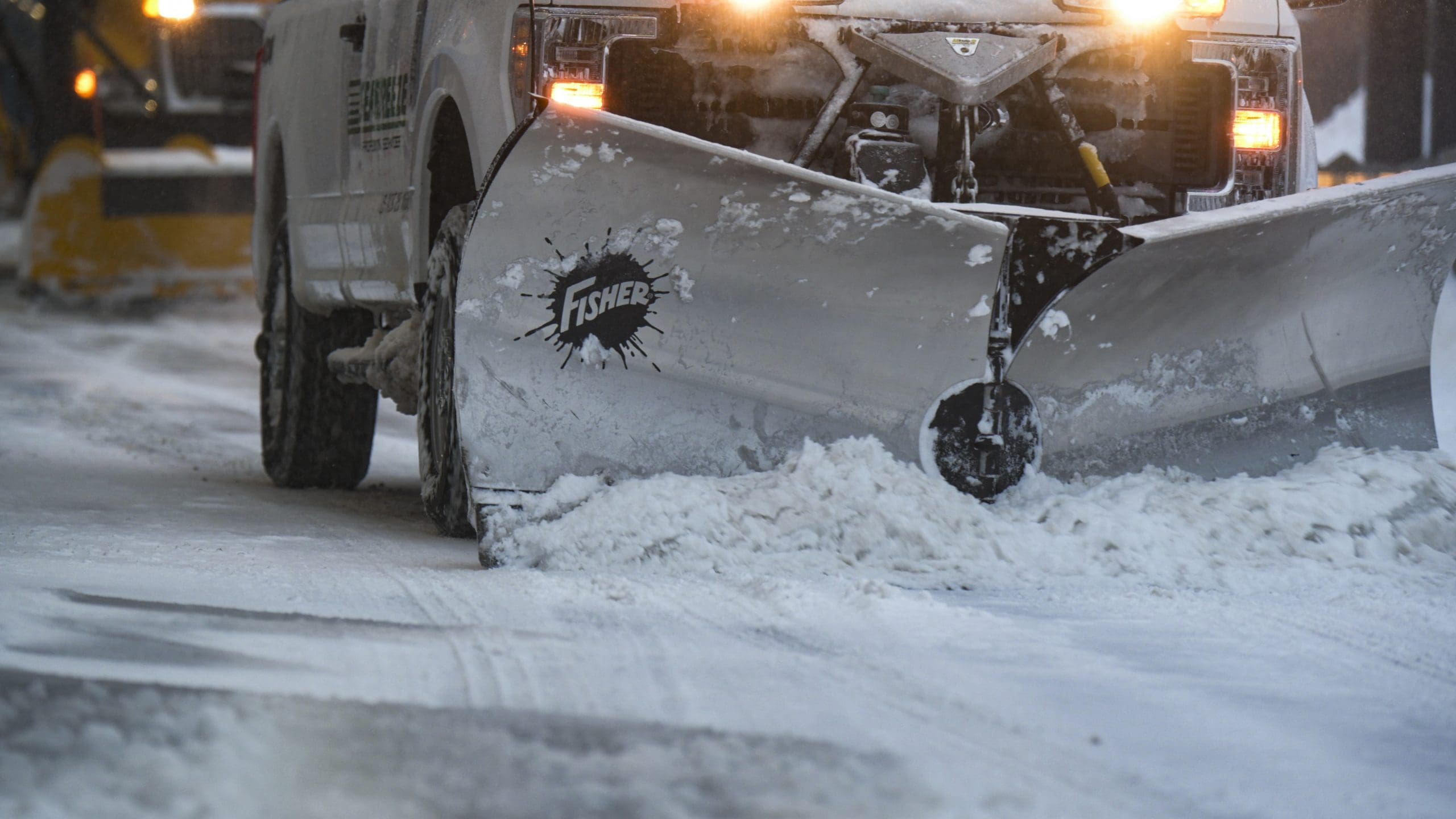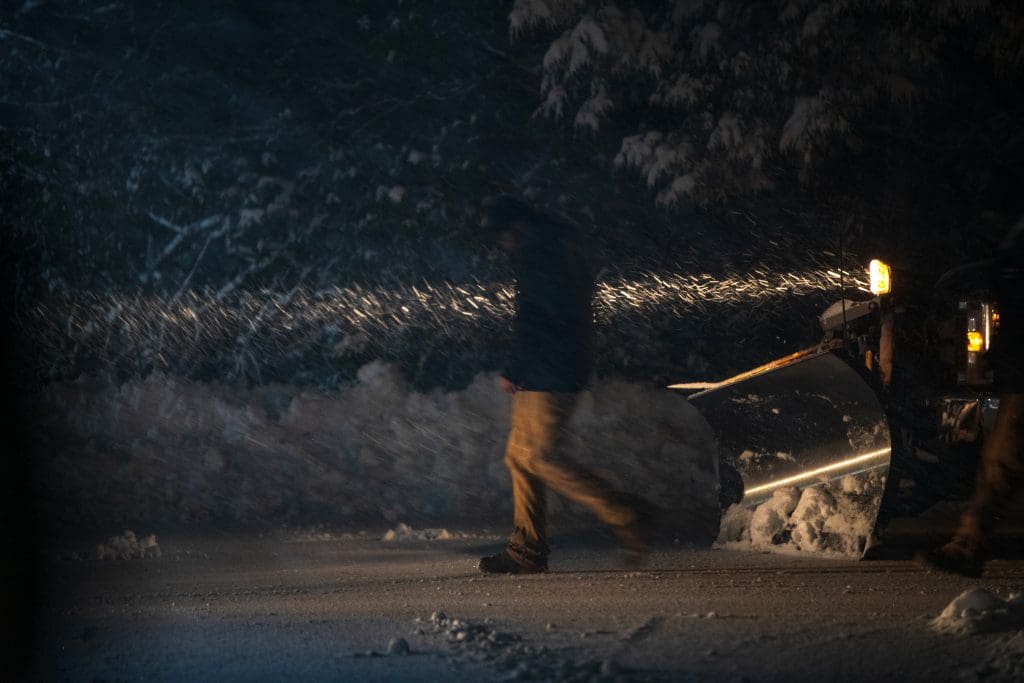
If you offer snow removal as a service you are all too familiar with the demanding hours and unpredictable nature of snowstorms. As a result, the wintertime can be particularly challenging to provide reliable hours for your employees.
Seabreeze Property Services, based in Portland, Maine, has also dealt with the retention struggle during the snow season. CEO Josh Flynn’s solution to this problem is providing his employees a guaranteed, 40-hour paycheck, snow or no snow.
Seabreeze employees will also be able to earn unlimited overtime during snow events, once they go over their 40 hours. By providing stability and a paycheck they can count on, Flynn hopes to retain his workers instead of them leaving to look for other work during mild winters.

Flynn says in the past during the shoulder months they’d lose five to seven employees of their crew, which would be 10 to 15 percent of their full-time workforce. He says since announcing the guaranteed 40-hour weeks, they haven’t lost any employees.
When he first announced the program, Flynn says some of his employees thought he was lying. Previously, they had been doing a winter loan program where the employees were guaranteed 25 hours and then Seabreeze would loan them the other 15 hours. Over the winter, the employees would pay back the dollar amount with overtime, and if they had a balance left over in spring they would pay Seabreeze back over 10 equal parts. Despite offering this program, Flynn was still losing employees.
“It just got confusing and people didn’t like having to pay their employer to work there,” Flynn says. “That’s not really what it was, it just felt like it.”
Flynn says that by keeping their staff up during the winter and rolling into the next grounds maintenance season, any new employees he hires become a net positive, not just a replacement of those he might have lost.
As for how Seabreeze is able to offer their employees 40-hour pay, regardless of snow, Flynn says it’s thanks to them only signing seasonal contracts. Some are all-inclusive, while other contracts have overage clauses in them.
He says it’s a lot easier to budget for the winter when they know what their revenue is going to be coming in the door and if their billing is every month. He says they run the Aspire software program and can send out their billing once a month and not have to think about it again.
“It’s a budgeting game,” Flynn says. “You’re never going to find our earnings to be 30 to 40 percent above projection, but there’s a really strong chance you’re never going to be 30 to 40 percent below projection. We’re looking to hover in this band around 50 percent GP and if we’re within a couple points of that any given snow season with tightly managed overhead, we feel pretty good about that.”
Flynn acknowledges that some snow seasons are going to be heavier than others and some will be lighter than others, and both types present a challenge with how to use your labor and keep everybody engaged. He argues that the time and material and the per service contracts are terrible for the industry and unfair to contractors.
“They’re not good for the security of their employees,” Flynn says. “They’re terrible for retention. They’re horrible for cash flow. Variable contracts beget variable employee retention. Guys go on unemployment just so you can call them back and get back in a plow truck.”

He says they’ve had marquee customers ask if Seabreeze would do the job on a per storm basis and he turned them down.
“We’re much more of an insurance policy than we are a service,” Flynn says. “We’re there if it snows and if it doesn’t, then we’re always waiting. But if I don’t have any money, then how can I guarantee these $200,000 loaders are in my yard ready to go, let alone the people who need to get paid every week to feed their families and heat their homes.”
Flynn acknowledges there is merit to playing the variability game by having a blend of types of contracts. He suggests securing a breakeven scenario, and then playing the averages to diversify your contract portfolio.
“If the numbers work out for them and their retention is still good, I’m not going to tell anybody to change the way they do things,” Flynn says. “But I think these seasonal contracts are a much more sustainable way to build your business over time. It certainly helped us in the last three or four years.”
He encourages others to educate their clients on your costs if you do want to switch to more seasonal contracts.
“Prove to the customer it’s way easier for your department because you’re just sending one check a month,” Flynn says. “It’s very streamlined. I’m going to be there when I’m supposed to be there. There’s no fighting over billing, how many inches it snowed, and how many times did you push and salt and was that necessary?”
Aside from their normal snow work, Seabreeze’s employees also have the opportunity to fill some of their hours volunteering at Good Shepard Food Bank, Maine’s largest food bank. They can help with everything from meal prep, to warehouse work, to food distribution.
“I wanted this guaranteed program or really any employment program we have over the winter to be productive and Maine’s a really hard place to find winter work,” Flynn says. “I’m going to be paying them anyway so why not make the time worth something to more people than just our employees or our company.”
He says rather than struggling to complete hardscaping projects over the winter or having crews constantly wash fleet trucks, the volunteer opportunity provides a nice change of pace for his team that is worth their while.
Seabreeze will also be dedicating time to training their employees. Flynn says they will provide 100 hours of training to each of their employees over the winter.
Between predicted snow work, training and volunteering, Seabreeze employees will end up working around 32 and 36 hours a week. Flynn says he’s not trying to squeeze 39.9 hours out of every employee and this move is about providing financial security to his employees.

“I don’t want anybody to feel like they have to go and get a different job if they love working here because the money’s not there so that they can eat and heat their homes and provide for their family,” Flynn says. “This is this is supposed to be a good-paying job that people can bank on year after year.”
He says while other companies probably wouldn’t be able to implement this model this season, he says the key is to plan and budget for this change. He says while owners may take a hit with this model, consider what it’s worth toward the longevity and stability of your company.
“I’m probably going to take a couple margin point hit but to me right now retention is just extremely important because employees are really hard to find,” Flynn says. “Anybody considering doing something like this, maybe do it with your 15 most important people if you have a 30-person company, make sure that the foundation of your company is covered.”


Comments are closed.